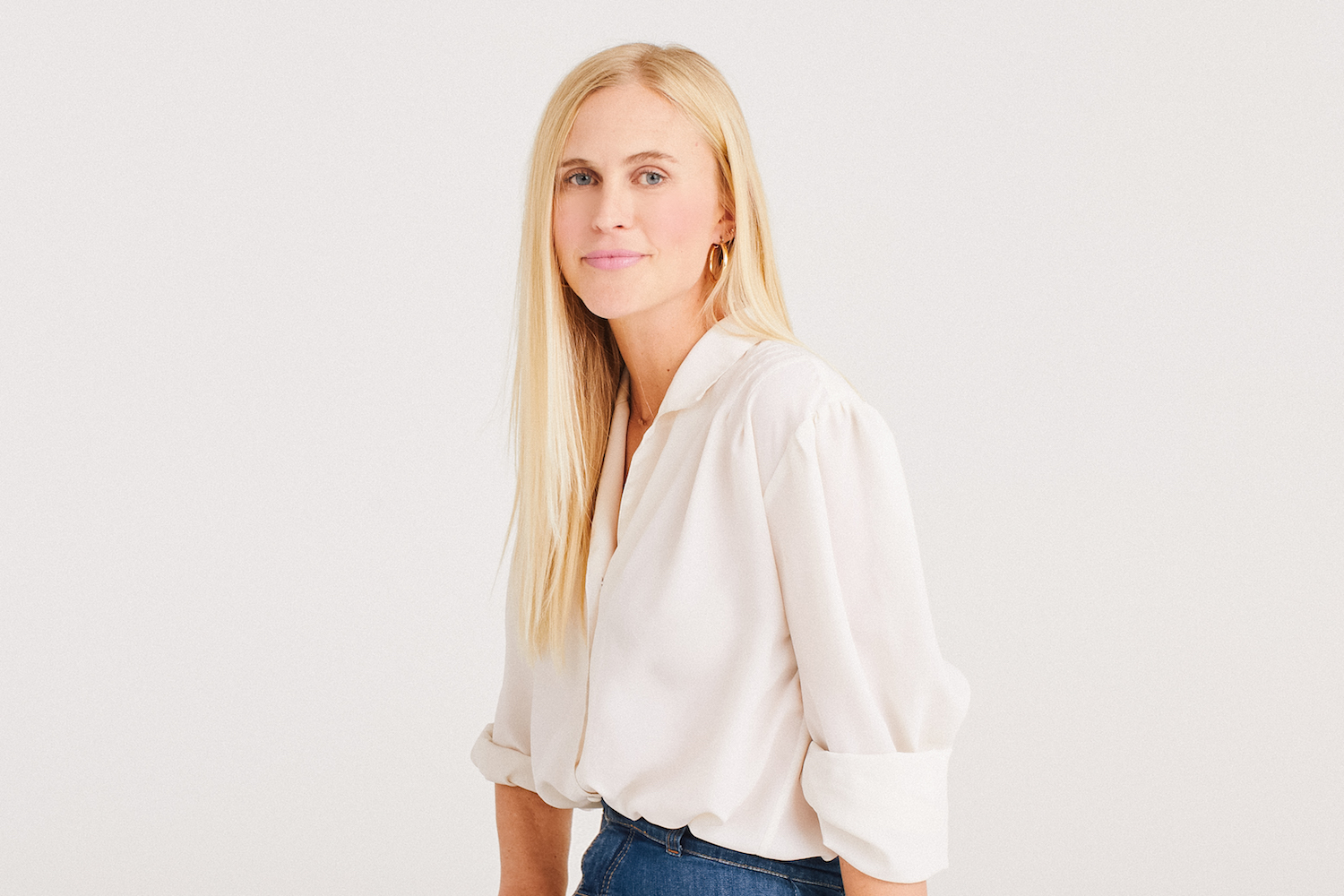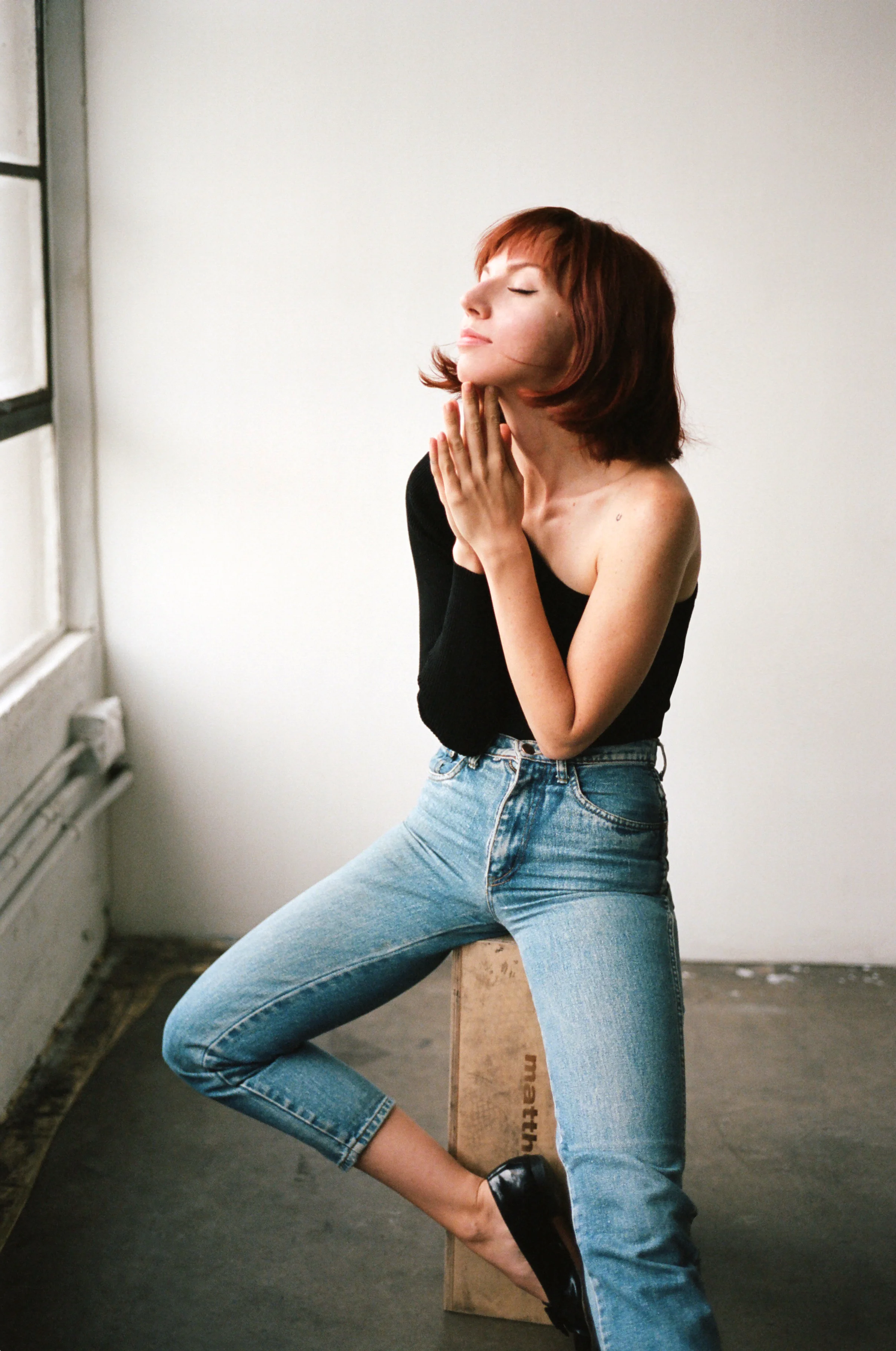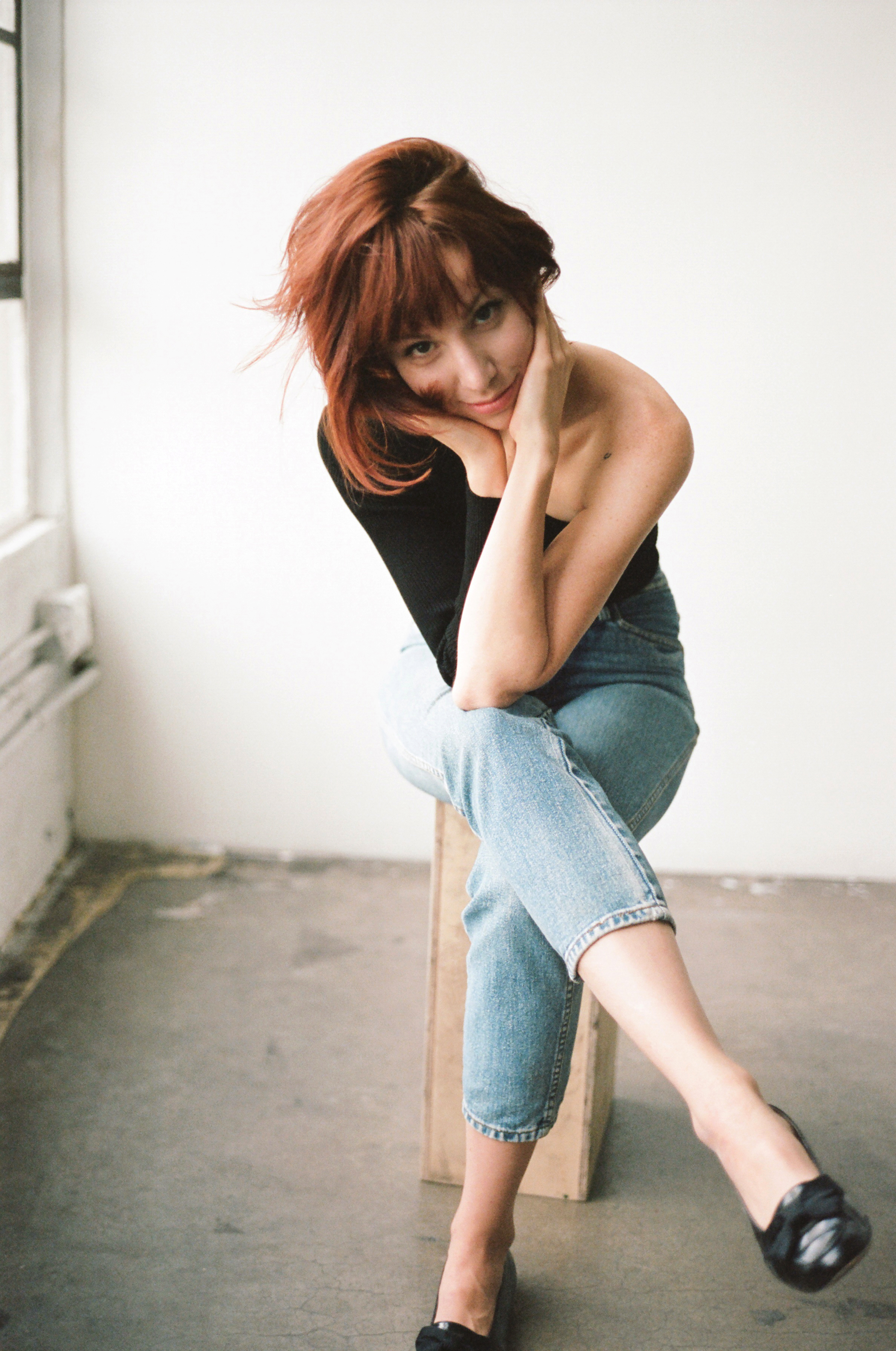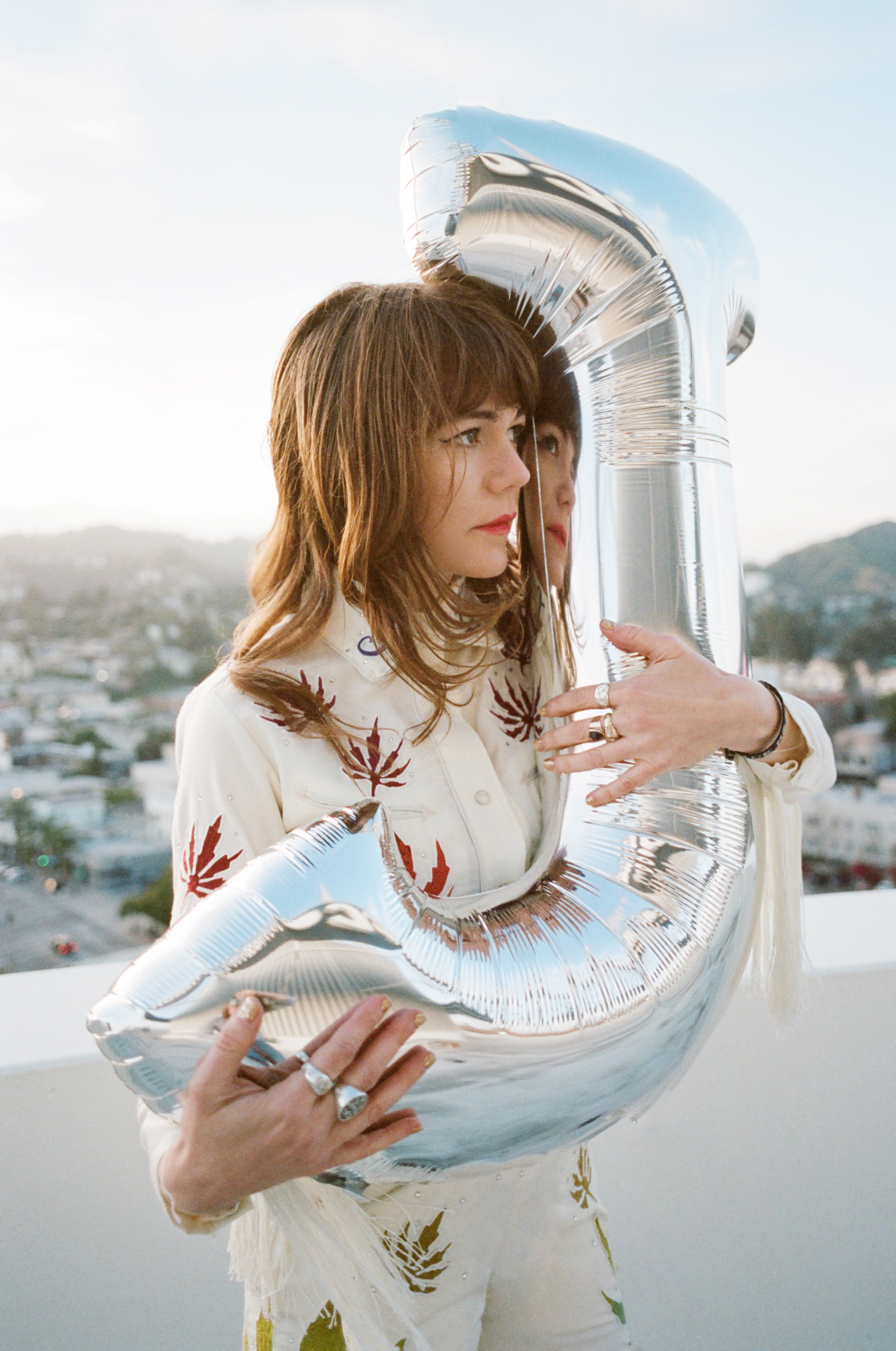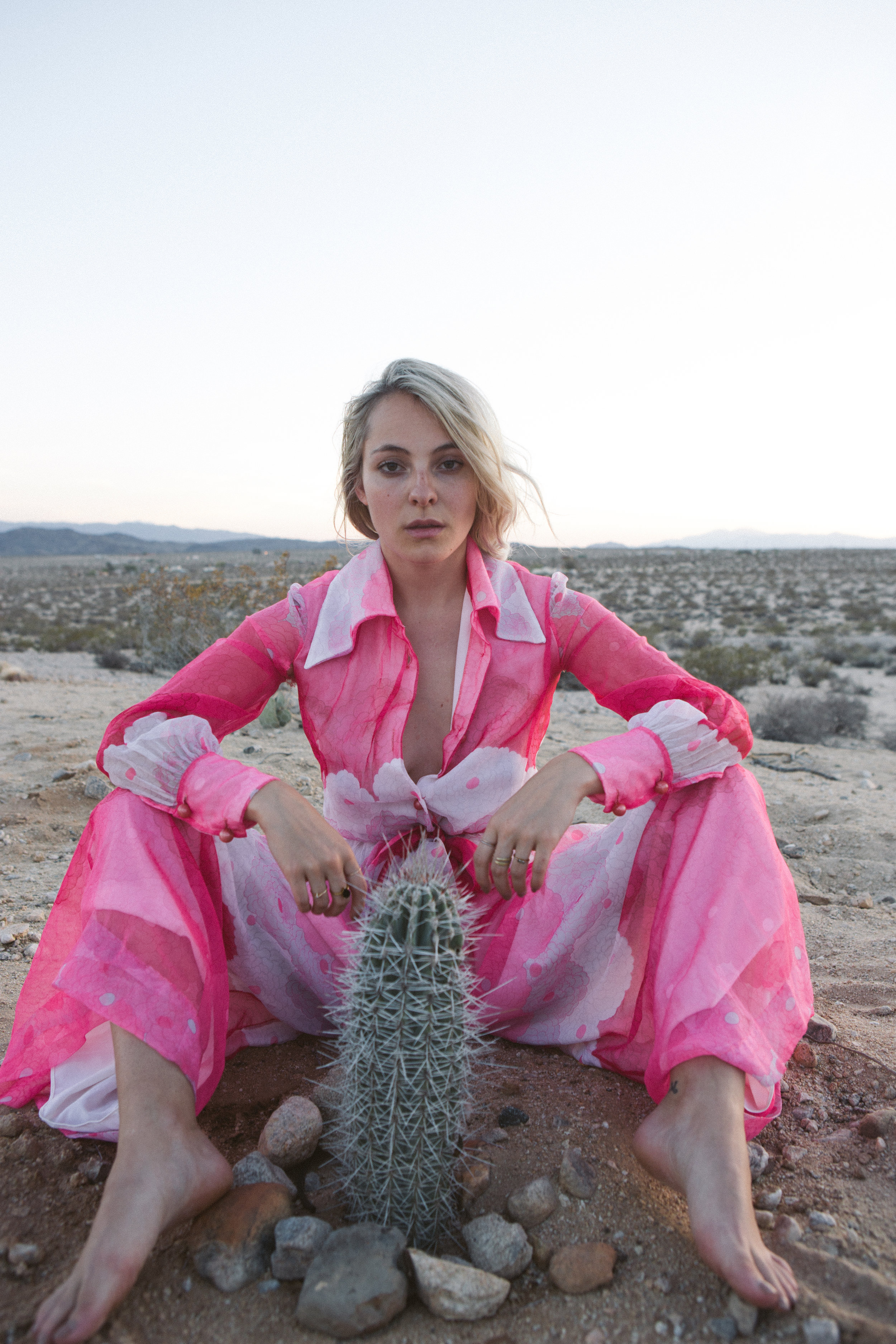This Photographer Shares How She Sets a Fair Rate
Hint: Don’t compare yourself to others.
You’ve seen the gorgeous photography from our #createcultivate100 list. Now, meet Annie McElwain, the woman behind the camera. Below, Annie shares her process for setting her rate, her dream client, and advice for young creatives.
How did you get into photography?
I used to be an actress and started photography as a hobby in my early 20s. I had no previous artistic background and never intended it as a career—I actually was a lot more academic in nature than artistic. However, there was something in me that has always wanted to tell stories of and share the beauty in the human experience.
What’s the most rewarding part of being a photographer?
Photos (especially portraits) often become more valuable, more cherished over time. The sentimental side of me finds this greatly rewarding.
In a dream world, who would you like to shoot?
The first female president.
What advice would you give to young artists and designers who are struggling to support themselves with their work?
It helps me to remember that without the struggle, we really wouldn’t appreciate it once we got wherever it is we want to go.
Where does your passion/drive come from?
It’s hard to say. I think everyone has drive once they find what they are passionate about. And sometimes finding this takes a lot of self exploration first.
“I do my best to live in a world where ‘likes’ don’t matter and real relationships are always more valuable than follower counts. ”
What keeps you up at night?
It varies between my ongoing to-do list, finances, and thinking about the next earthquake.
What advice do you have on knowing how to set a fair rate?
First, don’t compare yourself to what other people are charging, find what works for you in your life.
My basic approach to setting a fair rate comes from how much money I need to bring in each month and how many shoots I can handle each month. This gives a general idea of how much to charge for a shoot, though it’s not a perfect formula of course. Basically, I try to really understand the scope of the project before I send over a quote. With enough experience, I’ve come to really understand what my time is worth.
In a world where likes and follower counts are so coveted, how do you stay authentic and true to yourself/your brand?
I do my best to live in a world where likes don’t matter in the grand scheme of things and real relationships are always more valuable than follower counts.
What do you enjoy doing outside of work? How do your hobbies influence your art?
Yoga keeps me balanced, surfing reminds me to let go of control and to be present. Long walks and hikes allow my mind to wander freely. I escape with music. Travel, dinner with friends, podcasts— expand my horizons.
What’s the best piece of advice you’ve ever been given?
If you always do your best, you will never regret anything.
When you hit a bump or hurdle in your career, how do you find new roads + switch gears to find success?
I think just knowing that you WILL hit bumps and hurdles in your career makes it a bit easier to deal with them when they come. I find peace in knowing that things like this are relatively cyclical and most artists careers have peaks and valleys. I had a business coach once who really helped me with the idea of failing. She taught me that we only really learn when we fail, not when we succeed. So while it can be humbling, making mistakes or trying things out that don’t work are what make us better.
What are you most excited for in 2019?
I’m really excited to experiment more creatively and collaborate more with other artists this year.
How This Touring Photographer Survives Life on the Road
She's photographed Dolly Parton. That's all we're gonna say.
Allister Ann recently spent two days with Dolly Parton in Nashville. How's that for a 9-5?
Hint: it's not. As a successful music photographer and director known for her work with such artists as Tegan and Sara, Cold War Kids, Andrew Bird, yes, Dolly Parton and Adele-- to name drop a few-- the photog is used to long hours on set and on tour. See, the 29-year-old is also one of the few female music tour photographers, working as Kenny Chesney's personal photographer.
But life on the road is no breeze. And it's a field that's dominated by men (tickle our tummies and call us not surprised!)-- but not for long. Though Allister admits that tour life can take it's toll, she's seeing more women join the ranks. Read through to learn more about life from Allister's side of the lens.
Do you remember the first photo you took that captured a look, a soul, a vibe, where you thought, YES! This is my medium?
I remember while walking to and from FIDM college in downtown Los Angeles, there was, and still is a large population of men and women without homes. Taking the same route every day, some of them became familiar and we exchanged greetings, over time getting to know some names and later hearing a few stories. There was a bakery close by and sometimes I would share breakfast with them. I finally asked to take one mans portrait. There was something very special seeing that film developed. It wasn't just a picture, it was someone that I had taken the time to get to know. There was sentiment within it. That's the feeling that gave it meaning.
Where did you get your professional start?
While in Los Angeles going to school, I was taking photographs all the time, and learning the trade, but didn't make the conscious decision to take it on as a possible career until I quit school, moved to Nashville, and got my first paying professional job. There truly is something to be said when declaring what you want for yourself. I won’t say it's fooling others into believing in you, but believing in yourself enough to get what you truly want.
"There truly is something to be said when declaring what you want for yourself."
Tweet this.
How did that transition to the music industry?
Music had always been a big part of my life, and Nashville naturally exposed me to some of the most talented artists in the business. My first job was photographing a musician, and it all fell into place from there.
What was the first tour you went out on?
There were several ‘unofficial’ tours in the beginning. The first being Augustana, friends who believed in me and asked me to tag along. It really just felt like a road trip with friends, but with the addition of a camera to document our time together. Another was 30 Seconds to Mars, that was an experience in and of itself. We did only festivals that part of tour, so in between photographing the guys, I met other bands and shot them as well. Some of those people are still dear friends. The first official tour was with The Civil Wars. I was hired to be their exclusive photographer/videographer. We were together for about 3 years, and I was constantly by their side to document everything. It was an incredible experience.
What was life like on the road?
Going from city to city, shows night after night, it can all blend in together, but we were happy to be there and made the most of it. You can't help but become a tight knit family when constantly on the road. In the beginning, it was smaller venues, but as it quickly progressed, the venues became bigger and the audiences larger. Our first tour of Europe was amazing. We were all so thrilled to be there and share that experience. Photographing every moment started as simply documenting but quickly changed to becoming the makings of a family album of an incredible journey that none of us ever wanted to forget.
Why do you think it’s a field not many women are in?
When I first started there weren't many women doing what I did. Traveling can be a downside for some, physically and mentally-- it can take its toll. It's a different lifestyle that can be exhausting, but also exhilarating. I've seen over time though that there are more touring women photographers now and that's inspiring.
I've seen over time though that there are more touring women photographers now and that's inspiring.
Linda McCartney, Autumn De Wilde, Pennie Smith, and Annie Leibovitz during her time with Rolling Stones opened the doors and paved the path, and I would hope that in time many more women will choose this challenging but rewarding career.
L: Jenny Lewis; R: Vérité Published, Allister Ann
Are there moments where you’ve been treated differently as a woman?
Unfortunately yes, there have been times when being a female is thought to be a disability in some way. Assumptions that I may not be physically able to do the job or that my knowledge is limited. I found over time that it's not so much having to prove yourself, but more so handling situations as they arise with professionalism and a bit of grace. If you are comfortable in your own skin, and confident in your work, it will ultimately speak for itself, and the gender factor will never come into play.
If you are comfortable in your own skin, and confident in your work, it will ultimately speak for itself.
As you’ve grown in your profession how has your photographer’s eye changed?
Not so much changing but more so evolving. What I am inspired by at the moment, subjects I'm working with, everything is a contributing element to the final product.This last year I have been studying forms and light in sculptures and flowers among other still objects.It's a nice relief from the immediate reaction that documentary work requires.
We live in a world where everything is shared, everything is very visual, what is part of your art form that digital can’t take away?
Shooting film is still why I love photography. It keeps me on my toes in the sense of feeling that I had to earn that photo. There's no immediate fulfillment, but just an excited anticipation of waiting to see if it turned out as good, or better then you hoped for. It's a toss of the coin, or luck of the draw when you shoot in film. There's something very mysterious about it that keeps me fascinated with it.
Who are you most excited to shoot coming up?
An artist that I've worked with for the past few years just announced next years tour, so I'm very excited to see that road family again and spend some time with them. Also have been working on a portrait project of some fascinating people I've been wanting to meet. Portraits to me are so intimate and allows me to spend time with a stranger and get to know them, still one of my favorite things to do when I'm home.
MORE FROM OUR BLOG
Is There Really "A Special Place In Hell" For Women Who Don't Support Other Women
We're roundtable talking competition with four creatives.
A job market that is low on jobs, high on applicants has a pretty serious supply and demand problem. So for creatives in the similar industries, competition can be cut-throat.
So we asked three photographers and one filmmaker who work in similar creative fields, how they feel about competition, and if there is enough space in the creative world for everyone.
Hint: yes. There most certainly is.
We’re chatting competition. So we want to know, do you think there is enough space for everyone to be successful?
Monica: 100% yes BUT you have to create your own voice and brand. The photography market is over-saturated and copying another person's style or imitating their every move is not going to get you anywhere long-term. For me, I noticed very early on that the wedding photography market was very crowded so I had to shift gears and create my own niche with interiors photography.
Laura Dee, Wedding Photographer
Laura: A common complaint I hear in our little North East corner is that the market is over-saturated, so filled to the brim with wedding photographers, that you can't throw a rock [or toss a bouquet] without hitting one. And it's probably true, that there are more photographers now than ever before. Technology has made taking a decent photo much simpler for the masses, and the days of needing to have double-majored in technical engineering and chemistry to develop a dang picture are long gone.
That being said, roughly eleventy-billion people get married in this country every year, and of all of those weddings taking place, I need like 0.00001% to find me and my website full of awesomeness, in order for me to make a good living, and buy nice shoes.
I think there is plenty of space for the true go-getters, hard workers, movers, shakers and troublemakers to be successful, and I firmly believe in community over competition.
Sarah: Competition is healthy for us. It keeps us alert and fuels our passion for creativity. My biggest competitor will always be my inner self- everything I’ve ever created could’ve been better; there’s always something I could have moved or fixed just slightly to make my eyeballs happier. But when it comes to the outside world, I believe that there is plenty of success to be shared despite the heavy amounts of competition, which seems to increase exponentially year after year.
"My biggest competitor will always be my inner self."
Tweet this.
Trisha Vuong, Filmmaker Juice Box Media
Trisha: With our current obsession over all things visual, the marketplace has expanded. We’ve seen businesses pioneer their way into new open market space by offering fresh concepts that weren’t available before. Or businesses collaborating to create new experiences for their clients.
The industry has really developed into a community, and it’s breaking barriers creatively.
There’s a lot, a lot of talk about women in business and how "There's a special place in hell for women who don't help each other.” Thoughts, feelings, concerns about this concept?
Monica: I’m not much of a fan of the quote to be completely honest. I believe that women do need to support one another, but we don't all have to get along. That is just an unrealistic expectation. Yes shit happens, situations are unfair, and girls can be mean, but you have to move on.
"I believe that women do need to support one another, but we don't all have to get along."
Tweet this.
Laura: I wouldn't be where I am today, making a living as a photographer, if it hadn't been for my tribe of peers who supported me through the thick and thin of it all. One of my BFFs fo' life is a stellar wedding photographer, and we have talked each other's ears off simply trying to figure shit out. That's just what you do. You should support all of your friends, and especially the women folk. Plus, you gotta put good juju out there in the world, unless you want to get hit by lightning.
Sarah: I try to stay away from all negative thoughts. I just worry about what I am doing and how I act.
Trisha: I’ve never heard that quote, but it’s funny! I appreciate and look up to the women in business who lift others up and can go so far as publicly promote another. It takes assurance of self and professionalism to be able to accomplish that in a genuine way.
How do you support a peer, while also making sure you’re carving out a space for yourself?
Monica: I try to set boundaries. Sharing photography notes and referring potential clients to a peer are okay. I am not okay with sharing all my editing techniques and secrets. Anything that makes you feel semi-uncomfortable should probably be kept to yourself. That goes for anything... your addiction to The Arrow, the tattoo you got in Mexico, your grandma's spaghetti recipe, etc.
Laura: Support to me, means being a cheerleader when they level up, bringing over a magnum of wine and two straws after a tough gig, giving advice on 'the obvious stuff' [technical mumbo jumbo, general marketing, the basic how to’s of running a small business] and being a sounding board for their thoughts and ideas, if they need one.
The stuff that makes me the ridiculously fantastical unicorn that I am, isn't all that poachable. It is how I interact with my clients, the way I present myself, my online persona, lots of wine, and really just me being me. My clients hire ME, and the great work they get as a result is just the cherry on top of a colorful and tasty sundae.
“The stuff that makes me the ridiculously fantastical unicorn that I am, isn't all that poachable.”
Tweet this.
Laura: Oh, and keep your very best ideas to your dang self until you are ready and able to put them out into the universe.
Sarah: I love cross-promotion. Just make sure you are getting credit where you deserve it. Remember that it won’t hurt to kindly remind someone to tag you or your business in their posts, images, etc., or to make sure they give you a shout out for helping them put a project together. Just remember to do the same for them.
Trisha: We try to support our peers by referring work to them when we cannot do the work ourselves, whether that’s due to date conflicts or some other reason. It’s very rare for us to tell a potential client that we’re not available for a date without giving them a couple of our favorite industry peers' contact info. We also try to support new upcoming businesses that have shown an interest in what we are doing. The more we share with them our processes, philosophies, and techniques, the more we learn about ourselves. It’s an opportunity to be kind and also leads us to reevaluate our business as a whole. Win-win!
Have there been times when you’ve recognized an unhealthy competitive edge in yourself? Times when you've realized, this is not useful energy?
Monica: Yes, and it stemmed from an unhealthy amount of scrolling on Instagram, which I now limit. It has gotten a bit out of hand... hasn't it? The moment I notice myself feeling an inkling of jealousy or competitiveness I stop myself! Cold turkey.
Laura: Dude. When I first started a Facebook business page in 2010, I had a crazy stupid obsession with getting a ton of likes. I would stalk other pages and set goals to surpass their amount of fans by 'x date', like a jealous jilted lover stalks her ex while eating a pint of Ben & Jerry's under the covers late at night. It was bad.
The good thing that came from my Single-White-Female-Fatal-Attraction Era was that I learned A LOT about Facebook. It really helped me cultivate a good following of legit fans and I can honestly say that 85% of my business I owe to Mark Zuckerberg's desire to score chicks.
Sarah: There have definitely been moments where my healthy competitive nature has taken a turn to an unhealthy obsession with being better than someone else vs. just being the best I can be. Sometimes you have to check yo self! Never forget that the one thing no one else can be is YOU! Be authentic. Stay true to you.
Trisha: There have been times when we would hear about other businesses working on a high profile project, and I would wonder if we were considered. Part of that allows us to examine our style and see what our brand positioning is. However, the other part is time wasted, because we might spend valuable energy dwelling on something that has already occurred, and making assumptions that could be totally incorrect.
Video by Trisha Vuong, Juicebox Media
Where do you get your inspiration? And how do you balance the delicate line of being inspired by someone’s work, and copying it?
Monica: I get inspiration from reading books, playing the piano, going to the flower market, watching classic movies, and traveling. Doing it the old fashioned way! Everyone copies to some degree and I think it is ok. The best way to balance it is to get inspiration from something and then, twist it and make it your own version.
Sarah: Traveling inspires me more than anything. Leaving the comfort zone and forcing myself to explore personally unchartered territory expands my brain and really gets my creativity going. From the vivid colors of India to experiencing the northern lights in Finland, it all comes home with me and helps me add more layers to my artistic soul. You have to take it all in then magically morph it into your own expression. It’s an art form which takes a lifetime to perfect. I live life in the pursuit.
Trisha: I love watching documentaries about business owners who started small and went thru growing pains. Or reading about Pixar’s model for teamwork. We also look to our peers on social media. I love seeing what they are working on and how they are developing as visual creators. Their editing styles, equipment, and even what they ate for dinner is interesting! However, it’s not about trying the same drone shot or purchasing the same lighting. It is just wise to be aware of the strengths and weaknesses in your industry to be capable of meeting the needs of your client. I may need to copy what they had for dinner though!
Laura: So, I don't follow any other photographers' work, because the great ones [and there are plenty great photographers all over this planet] sometimes make me look at my shit and say, "well, this is shit." I have a hard time getting out of that headspace, so instead I get my inspiration through other means, mainly architecture, talking to people, and literature. I also have a really vivid imagination, so there's always ideas floating around that I try to flesh out into a photographable concept.
"Complacency in a creative industry is a nail in your well-planned, well-designed, well-photographed coffin."
Tweet this.
Laura: As for 'being copied'; you might think you're the first to do something, but chances are you're probably not. And if you are, and people are copying your hard work, use that indignation to light a fire under your bum to take your stuff and make it even better, newer, shinier. Complacency in a creative industry like the wedding world is a nail in your well-planned, well-designed, well-photographed coffin. And just imagine that first planner to style a wedding with mason jars, wild flowers and burlap galore...he or she probably wishes they trademarked that ish.
Arianna Schioldager is Create & Cultivate's editorial director. You can find her on IG @ariannawrotethis and more about her on this site she never updates www.ariannawrotethis.com


